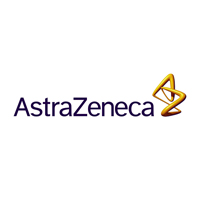AstraZeneca plc (LON: AZN) today announced final overall survival results from the Phase III NEPTUNE trial, a randomised, open-label, multi-centre, global trial of Imfinzi (durvalumab) in combination with tremelimumab, an anti-CTLA4 antibody, vs. standard-of-care (SoC) platinum-based chemotherapy in previously-untreated Stage IV (metastatic) non-small cell lung cancer (NSCLC) patients. The trial was performed in an all-comers population, and the primary analysis population was patients with a high tumour mutational burden (TMB). TMB is a measurement of the number of mutations within the genome (DNA) of a tumour, and tumours with high levels of TMB may be more visible to the immune system.1,2
In the primary analysis population of patients whose blood TMB was 20 or more mutations per megabase (mut/Mb), the combination of Imfinzi and tremelimumab did not meet the primary endpoint of improving OS compared to SoC chemotherapy. The safety and tolerability profile for the combination of Imfinzi and tremelimumab was consistent with previous trials.
José Baselga, Executive Vice President, Oncology R&D said:
“We are fully committed to a deep analysis of the vast clinical and biomarker data from this trial to gain further insights to improve Immuno-Oncology approaches for patients with metastatic non-small cell lung cancer.”
AstraZeneca will submit the full results for presentation at a forthcoming medical meeting.
Imfinzi is also being tested as monotherapy in the Phase III PEARL trial, and in combination with chemotherapy with or without tremelimumab in the Phase III POSEIDON trial as part of an extensive late-stage Immuno-Oncology programme in Stage IV NSCLC.
About NEPTUNE
The NEPTUNE trial is a randomised, open-label, multi-centre, global, Phase III trial of Imfinzi in combination with tremelimumab vs. SoC platinum-based chemotherapy in the 1st-line treatment of patients with Stage IV (metastatic) NSCLC. The trial population included patients with non-squamous or squamous histologies, no epidermal growth factor receptor (EGFR) or anaplastic lymphoma kinase (ALK) mutation and the full range of PD-L1 expression levels. The primary endpoint was OS in patients with high blood TMB defined as ≥ 20 mut/Mb.
The trial is being conducted in more than 200 centres across 29 countries, including the US, Europe, South and Central America, the Middle East and Asia.








































